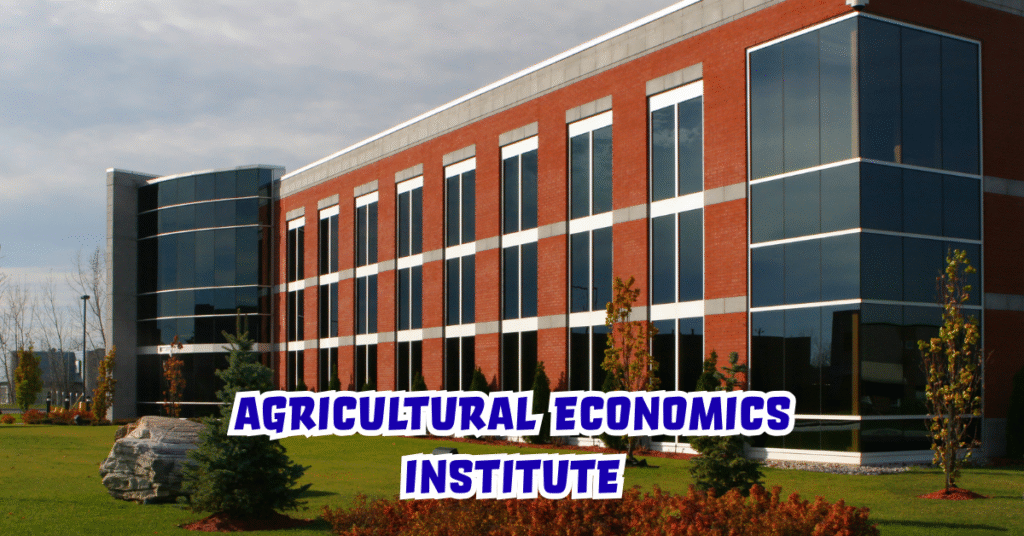The Landbouw Economisch Instituut—often translated as the Agricultural Economics Institute—stands as a cornerstone for understanding how agriculture, economics, and policy intersect to shape the future of food systems and rural societies. Established with the aim of providing evidence-based insights into farming practices, trade policies, and the socio-economic wellbeing of agricultural communities, it has played a pivotal role in guiding both governmental and institutional decisions. For researchers, policymakers, and even everyday farmers, its work offers data-driven knowledge that turns abstract policy goals into actionable strategies. Within the first few decades of its operations, the institute gained recognition not only within Europe but also across global agricultural forums for its methodical and forward-looking research.
Understanding the Landbouw Economisch Instituut requires diving into its historical background, the socio-political conditions that shaped its mission, and the broad scope of research areas it touches. From food security and rural employment to international trade and climate sustainability, the institute’s body of work bridges practical farming realities with larger economic frameworks. “Agriculture is not just about growing food; it’s about nurturing societies,” remarked one researcher affiliated with the institute, capturing the ethos of its mission.
This article offers a comprehensive 3,000-word informational guide to the Landbouw Economisch Instituut. We will unpack its origins, highlight its research areas, discuss its influence on global policy, and provide updated insights into its modern-day relevance. Readers will also find structured tables comparing its research focus areas and its collaborations with international organizations. By the end, the goal is to ensure a deeper understanding of how the Landbouw Economisch Instituut not only analyzes agricultural economics but also shapes the way societies think about food, sustainability, and economic development.
The Historical Origins of the Landbouw Economisch Instituut
The roots of the Landbouw Economisch Instituut can be traced back to the early twentieth century when agriculture was undergoing significant structural change. The need for an institute dedicated to agricultural economics became apparent as governments recognized that farming was no longer simply a traditional livelihood but a critical element of national security, trade, and industrial progress. Initially, the institute focused on studying farm productivity, pricing mechanisms, and rural labor markets. Over time, however, its mandate expanded to include sustainability, environmental impact, and international trade negotiations.
The institute emerged during a period when rural economies were highly vulnerable to shifts in global markets. Grain imports, mechanization, and shifts in consumer demand were creating both opportunities and uncertainties. Policymakers required precise data to understand how best to support farmers without creating distortions in trade. Thus, the Landbouw Economisch Instituut became a trusted intermediary, translating economic theories into policy frameworks that had practical consequences for millions of farmers.
One historian described the institute’s emergence as “a turning point in how nations understood the economy of food.” That statement underscores the lasting impact of creating an independent body devoted to studying the intersection of farming and economics.
Research Domains and Specializations
The Landbouw Economisch Instituut’s research covers a wide variety of domains that span both microeconomic and macroeconomic perspectives. At its core, the institute seeks to balance the immediate concerns of farmers with the long-term sustainability goals of societies. Its research areas include farm productivity, food policy, sustainability, and rural development.
Table 1: Key Research Domains of the Landbouw Economisch Instituut
| Research Area | Focus Description | Impact on Policy |
|---|---|---|
| Farm Economics | Cost-benefit analysis, labor markets, pricing strategies | Helps determine subsidies and farm support |
| Food Security & Policy | Access to nutritious food, trade dependencies | Guides national and EU food strategies |
| Sustainability & Environment | Soil health, biodiversity, climate resilience | Promotes eco-friendly farming techniques |
| Rural Development | Employment, migration, community resilience | Strengthens rural economies |
| International Trade | Export-import trends, tariffs, global competition | Shapes trade negotiations |
Each of these domains is interconnected. For example, studying international trade without considering food security would be incomplete, as import dependencies affect both pricing and national resilience. Similarly, sustainability research now carries greater urgency as climate change alters the basic parameters of farming.
The Role in Shaping Agricultural Policy
Perhaps the most notable function of the Landbouw Economisch Instituut lies in its contribution to agricultural policy. Governments frequently rely on its reports to decide subsidies, tariffs, and environmental regulations. For instance, its analysis of farm labor efficiency has been used to reform rural employment schemes, ensuring fair wages while maintaining competitiveness.
Beyond national policy, the institute has also shaped discussions at the European Union level. It has advised on the Common Agricultural Policy (CAP), one of the EU’s most significant frameworks for managing farming subsidies and sustainability. By grounding these policies in rigorous economic analysis, the institute ensures that decisions are not only politically acceptable but also economically viable.
“Agricultural policy without research is like sailing without a compass,” one policymaker once commented when reflecting on the institute’s role. This metaphor illustrates how deeply embedded the Landbouw Economisch Instituut has become in shaping agricultural governance.
Global Collaborations and Partnerships
Agriculture is inherently global, as food systems are interdependent across continents. The Landbouw Economisch Instituut has long recognized this reality by collaborating with international organizations such as the Food and Agriculture Organization (FAO), World Bank, and regional research institutes in Asia, Africa, and South America. These collaborations have allowed the institute to integrate diverse perspectives into its work while exporting its expertise abroad.
Table 2: Global Partnerships of the Landbouw Economisch Instituut
| Organization/Partner | Nature of Collaboration | Outcome Achieved |
|---|---|---|
| FAO | Joint food security studies | Global food resilience recommendations |
| World Bank | Economic modeling and agricultural financing | Enhanced rural credit policies |
| European Union CAP Committee | Policy advisory and impact evaluation | Reforms in agricultural subsidies |
| African Development Institutes | Knowledge sharing on sustainable farming | Improved climate resilience projects |
| Universities Worldwide | Academic exchange and collaborative research | Stronger data-driven agricultural studies |
Through these collaborations, the institute has not only enhanced its credibility but also positioned itself as a global leader in agricultural economics research.
Influence on Sustainable Farming
Modern agriculture faces unprecedented challenges: climate change, soil degradation, biodiversity loss, and water scarcity. The Landbouw Economisch Instituut has consistently highlighted the importance of transitioning toward sustainable farming models that prioritize long-term ecological balance over short-term profits. Its studies on soil fertility and biodiversity protection have influenced farmers to adopt more eco-conscious practices.
For example, by quantifying the economic value of ecosystem services—such as pollination by bees or natural soil regeneration—the institute has provided policymakers with strong evidence to support conservation-oriented farming. Farmers, too, benefit from such research, as it reframes sustainability not as a burden but as an economic opportunity.
The institute’s advocacy for sustainable farming reflects a belief that the health of rural communities is tied to the health of the land itself. As one researcher noted, “A farm that ignores sustainability is farming against its own future.”
Modern-Day Relevance in a Changing World
In today’s context, the Landbouw Economisch Instituut remains relevant because global agriculture has entered a new phase of complexity. Digital technologies, artificial intelligence, and climate modeling are now integral to farming economics. The institute has adapted by incorporating big data into its research, using predictive analytics to model crop yields under different climate scenarios.
Its relevance also extends to debates about food sovereignty, trade wars, and the ethics of biotechnology. By offering clear, evidence-based insights, the institute helps decision-makers cut through political rhetoric to address the underlying economic realities.
Moreover, the institute continues to serve as an educational resource, publishing accessible reports that inform not just policymakers but also farmers, students, and journalists. Its communication style has evolved, with digital platforms making its work more transparent and accessible than ever before.
Frequently Asked Questions (FAQs)
1. What is the main purpose of the Landbouw Economisch Instituut?
The primary purpose of the institute is to provide evidence-based research on agricultural economics, shaping policies that ensure food security, sustainable farming, and rural development.
2. How does the institute influence farmers directly?
It offers data-driven insights that affect subsidies, market prices, and sustainability programs, which in turn shape farming practices and livelihoods.
3. Is the Landbouw Economisch Instituut only focused on Europe?
No, while its roots are in Europe, it has extensive global collaborations, working with organizations like the FAO and World Bank.
4. What makes its research unique compared to other institutes?
Its multidisciplinary approach, combining economics, ecology, and social sciences, ensures that agricultural challenges are studied holistically.
5. How does it address climate change in agriculture?
By modeling future scenarios, quantifying environmental services, and advocating for eco-friendly policies, the institute plays a proactive role in climate resilience.
Conclusion
The Landbouw Economisch Instituut is far more than a research body; it is an institution that embodies the dialogue between agriculture and economics, policy and practice, and local farming needs and global trade realities. Over the decades, it has successfully adapted to changing conditions, ensuring its research remains relevant in a rapidly evolving world. From its early focus on farm productivity to its present emphasis on sustainability and digital integration, the institute has maintained its role as a trusted advisor to governments and international organizations alike.
By championing sustainability, influencing global policy, and supporting rural communities, the Landbouw Economisch Instituut stands as a testament to the value of data-driven agricultural research. As food systems continue to face challenges from climate change and globalization, its work becomes ever more critical. In the words of one of its long-serving directors, “Agriculture is not just an economic activity—it is the foundation of human survival.”
The institute’s mission, therefore, is not just about economics or farming but about ensuring that societies can thrive in harmony with the land. Its ongoing contributions guarantee that the voices of farmers, policymakers, and communities remain connected, fostering resilience in both agriculture and the economies it sustains.







